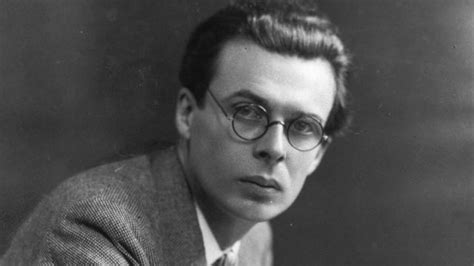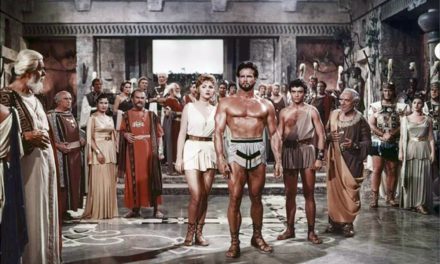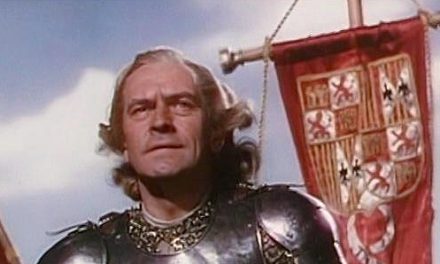Since the election of Donald Trump and the subsequent hysteria about our slide into a dark, dystopian state, Aldous Huxley, along with Orwell, has enjoyed a mild revival. As I’m sure few need reminding, Huxley wrote Brave New World, a work followed twenty-six years later by Brave New World Revisited (which I mention only to justify the title of this piece).
In many ways, it’s regrettable that Brave New World has gotten so much attention because Huxley in his heyday was celebrated for a number of other renowned novels: all satirical (Antic Hay, Eyeless in Gaza), some comical (Crome Yellow), and some scathingly cynical (Point Counterpoint).
It’s worth remembering, also, that Huxley was a lucid essayist, simultaneously learned, witty, and polymathic; literature, music, and travel were just a few of the subjects at which he excelled. Allowing that, among the essays of his that I’ve read, I know of one that remains especially memorable, perhaps because it has proven so helpful over the years. Entitled “Books for the Journey,” it focuses on the question every reader asks himself as summer rolls into view: What books should I take to the beach or, depending on one’s tastes, to the mountains? For we dwindling few who still consider a life without books no life at all, the inner debate about what to read on a trip remains a serious matter.
How did Huxley speak to this issue, which so impressed me? First, of all, he knew something about human nature. He understood that we readers are ambitious and in this way: some book—lengthy, worthy, and possibly long-neglected—has beckoned to us for some time, possibly for years. What better occasion to tackle it than one when we have, at least as we imagine, plenty of time?
For me, one such book is Alan Bullock’s Hitler and Stalin: Parallel Lives. I really want to read it, but I never have time during the academic year. Just thing to read during a two-week visit somewhere during summer break, right? Huxley knows better, and so do I. At 1079 pages, it can’t compete with all the eating out, shopping, and visiting that are too often line items on the vacation schedule. Chances are Bullock won’t get opened—that is, if I’m stupid enough to pack him. Huxley convinced me long ago of the futility of such a deed. And if you’re reading this—fill in the blank with whatever title you will—you probably know what I mean.
So what does one pack? I’ll answer that in two ways: first, by offering up a few of Huxley’s examples of good books for the journey, and, second, by making a suggestion or two of my own based on Huxley’s principles.
One book Huxley suggests I’ve never been able to find, but for anyone who can, it’s a superb choice. The “best traveller’s book of all” is one volume from a half-sized edition of the Encyclopedia Britannica, with a single volume (out of thirty-two) left to the reader’s discretion. Huxley likes volume twelve. A stray volume of the Britannica, he observes, is “like the mind of a learned madman—stored with correct ideas, between which, however, there is no other connection than the fact that there is a letter B in both.” Of course, I never thought of this before I read the essay in 1975, but the suggestion is a stroke of genius. This is a book you can open, read for profit and pleasure, and then close without so much as marking the page.
Another book for the journey that Huxley heartily recommends, as, indeed, do I since I have actually read it cover to cover, is Boswell’s Life of Johnson. Like the Britannica, Boswell has the virtue of being chock full of interesting, thoroughly entertaining, and mostly quite valuable moments, the best of them delivered in what Huxley calls an anecdotal (C. S. Lewis calls it “chatty”) style; it’s also loaded with numerous worthy aphorisms. I tell myself every year that I must re-read Boswell, but Huxley reminds me that I’ve missed the point insofar as a cover-to-cover perusal is unnecessary. A dipping into to it for choice episodes will be rewarding enough and ideal for the purpose of reading on a trip.
I need not remind readers of this review that the Bible is an excellent book for any trip for the obvious reason that it is the record of our faith and should be digested in small amounts slowly. Huxley thinks so too.
Beyond that, according to Huxley’s logic, what books have I found appropriate for a summer sojourn? Since I recently got back from a two-week trip—part church business and part pleasure—I can answer that readily (yes, that’s a joke) enough. Recently, I recalled that I had neglected to read one of the most famous masters of detective fiction, Georges Simenon whose Inspector Maigret ranks among the greatest sleuths.
I remedied the deficiency by purchasing the first of the Maigret novels (from 1930) Pietr the Latvian, about 160 pages in fairly large type, and started reading it on the plane. The trip, typical of its type, was filled with moments of non-reading: road trips all over Texas, afternoon naps, shopping, swimming, and eating out. No problem. The book was finished with ease before I caught my return flight. And, yes, I loved it, which carried the added bonus of years of reading pleasure: Simenon wrote seventy-four Maigret novels.
With Maigret no longer an option, what was I reading on my return flight? I also carried with me a Graham Greene novel, The End of the Affair. Like Pietr the Latvian, it is a fairly short work, again, about 160 pages. And it’s Greene through and through, which means profound and poignant, a fascinating and, without becoming overly experimental, demanding foray in narrative technique. I read less than half of it on the plane and finished it a couple of days after my return home. As with Simenon, I left Greene with the desire to read more—and, as with the best books, to re-read both one day.
Like many of the books one can take on a journey, these two were small and easy to pack, adding less than a pound to the overall weight of my carry-on luggage (not a minor consideration these days). If I’d lost either, chances are Amazon Prime would have supplied the deficiency in two days, which is not a bad recommendation at that.
So there you have it: Aldous Huxley’s “Books for the Journey” revisited. Choose the books you like, big or small, weighty or slight. Whatever the choice, I think anyone who follows Huxley’s advice will find it worthwhile, ending the trip knowing he actually read something, and thankful he was not, for once, overly ambitious.














